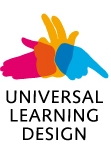Topical Sections
- Standards of Universal Learning Design at Universities and Testing of Persons with Special Needs
- Linguistic Competence of the Hearing Impaired and the Role of Sign Languages and the Text Reporting in Tertiary Education
- Universal Design of Electronic Documents and Public Electronic Libraries for Purposes of Tertiary Education
- Compensation Tools for the Specific Learning Disorders and Other Types of Diversity in Tertiary Education
1 Standards of Universal Learning Design at Universities and Testing of Persons with Special Needs
The section focuses on:
- The concept of a special need, diversity and its categories.
- Design for All (DfA), Universal Design for Learning (UDL), Universal Learning Design (ULD), Universal Design for Instruction (UDI) and Universal Instructional Design (UID).
- The confines of universal design and individual accommodation, the right for a universal learning design and its enforceability, the right for an individual accommodation and its eligibility, rights and duties of parties at a case.
- Legislative, methodological and technological standards of universal design and individual accommodation for persons with visual, hearing or mobility impairment, neurodiversity and chronic diseases.
- Management and financing of services providing universal learning design and individual accommodation in tertiary education.
- Universal design of Learning Potential Tests and Qualification Tests, standards for individual accommodations of partial sub-tests, and measurably of results.
- Universal design in national and international contexts: cooperation of schools during transition between various levels of education; school networks providing students’ mobility.
- Universal design of science and research.
2 Linguistic Competence of the Hearing Impaired and the Role of Sign Languages and the Text Reporting in Tertiary Education
The section focuses on:
- The issue of native language and language of communication among persons with severe hearing impairment; the issue of official, instruction, foreign and world languages of persons with severe hearing impairment compared to other linguistic minorities.
- Linguistic standard and linguistic diversity in speaking and writing of persons with severe hearing impairment.
- Language instruction and the achievement of prescribed linguistic competences of persons with severe hearing impairment.
- Spoken language visualisation, speech-to-text reporting, and other systems of communication for persons with hearing impairment usable in tertiary education.
- E-learning systems, videoconferencing and instant messaging in sign languages.
- Sign language as a tool in tertiary education and specialized communication, its stylistic diversity and standards.
- Application of the Common European Framework of Reference for Languages on sign languages and testing of linguistic competences in these languages.
- Phonology, morphology and syntax of sign languages, their interference with spoken languages and influence on communication within a university environment.
- Lexicology and lexicography of sign languages, development of vocabulary, issues with terminology and internationalisms.
- Sign languages recording and noting systems, creation of databases and linguistic corpora, software tools for handling databases and corpora.
- Linguistic, organizational, didactic and legal issues of translation and interpreting in academic settings.
3 Universal Design of Electronic Documents and Public Electronic Libraries for Purposes of Tertiary Education
The section focuses on:
- WCAG and comparable documents, their enforceability, advantages and imperfections in relation to persons with various types of special needs; web accessibility and usability.
- Transferability of WCAG and comparable documents to E-learning environments and digital documents; accessibility, readability and content comprehensibility of official and specialized documents.
- Standards for digital documents intended for tactile or auditory perception, hybrid documents and the Digital Talking Book.
- Digital documents intended for reproduction of tactile, audio or visual documents, hybrid documents and DAISY.
- Universal design of video and audio formats.
- HTML, XML, MathML standards and digital tools for handling mathematical, physical, chemical and other symbolic notations via tactile or audio outputs.
- Digital libraries and their accessibility, digitization and standards for conversions among formats.
- Copyright issues related to universal design and individual accommodation of documents and individual access at national and international levels.
- Public library catalogues and their accessibility, sharing and internationalization.
- Cataloguing of tactile, audio and graphical documents; cataloguing of digital documents intended for individual reproduction of tactile, audio or graphical documents; cataloguing of the Web.
- IT literacy of persons with special needs, its standardization for individual impairment categories and academic public’s awareness of the specifics of such literacy.
4 Compensation Tools for the Specific Learning Disorders and Other Types of Diversity in Tertiary Education
The section focuses on:
- Typology of specific learning disabilities and other types of neurodiversity, testing and measuring of these among adults.
- Compensation strategies, their practicing and approach to persons with a compensatory disability.
- Individual accommodation of testing environment and technological compensatory devices.
- Differences in work with a screen reader, voice output and electronic formats between persons with specific learning disorders and the visually impaired.
- Electronic libraries and their usability by persons with specific learning disorders, digitization and standards for conversion among formats.
- Copyright issues related to universal design of documents for persons with specific learning disorders.
Keynotes
Universal Learning Design: A View from Conceptual Goals to the Actual Implementation

Arthur I. Karshmer
Department of Analytics & Technology
School of Management
University of San Francisco
From “Hearing Impairment” to “Deaf-Gain”: A Theoretical Framework for Universal Design for Learning?

H-Dirksen L. Bauman
Gallaudet University

Melissa Malzkuhn
Gallaudet University
Organising Student support using accessible electronic documents, e-books and audiobooks: an overview

Jan Engelen
Katholieke Universiteit Leuven
Dyslexia friendly tertiary education

Kate Saunders
British Dyslexia Association









